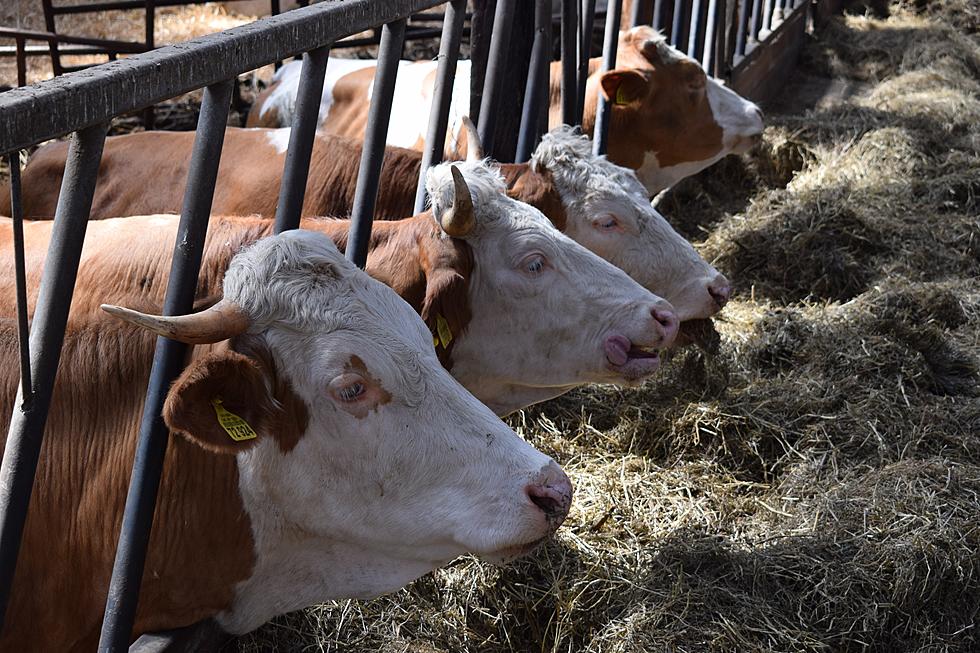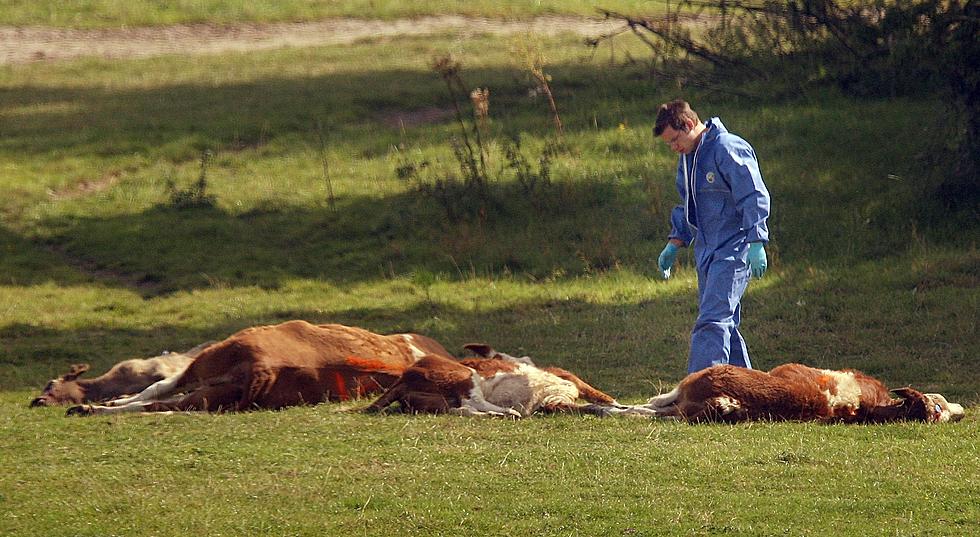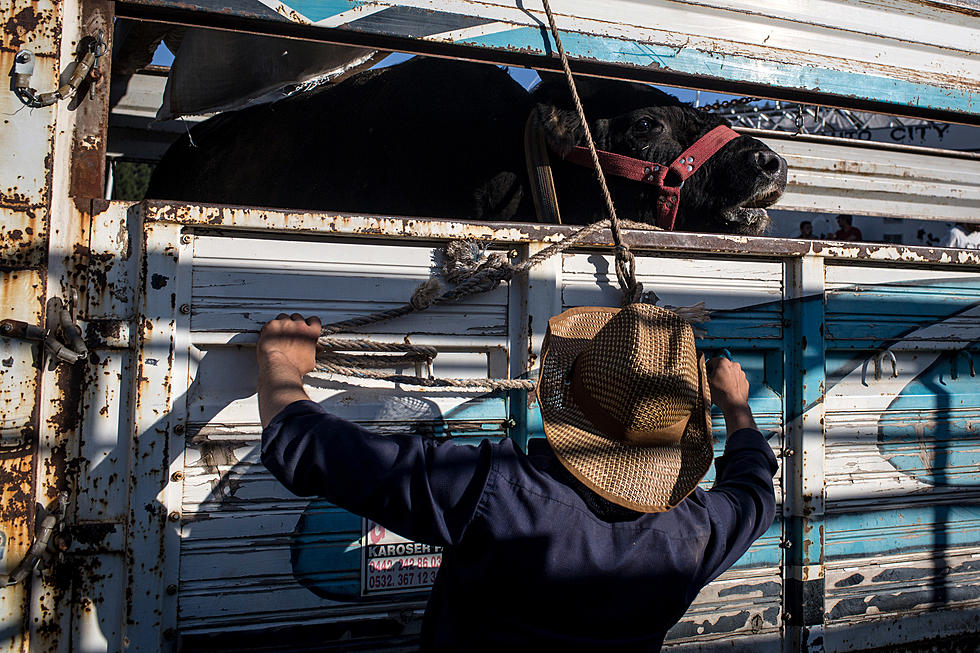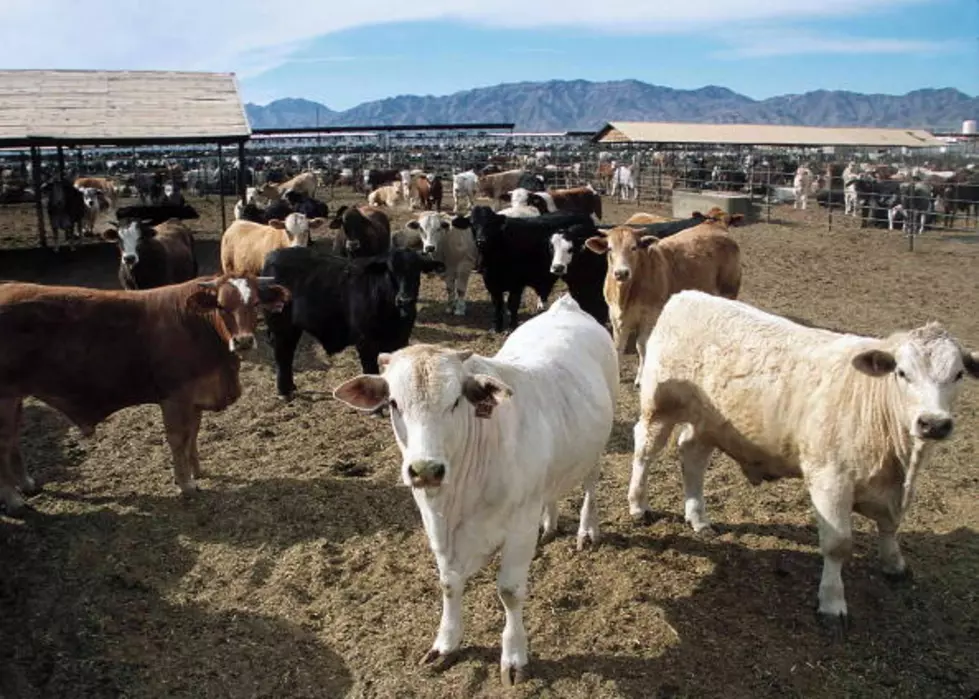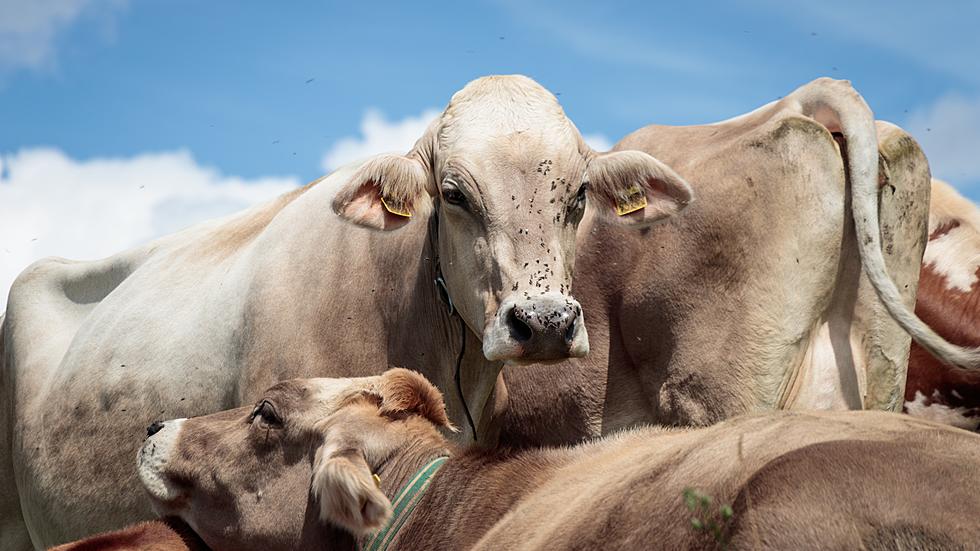
Flies Are Causing Economic Losses For Iowa Cattle Producers
Just as flies can be annoying to us, they can also cause a nuisance to our cattle.
The horn fly is an insect that can get to be 3-5 millimeters in size with mouthparts that are painful even to cattle. Research from Texas A&M University has shown that the horn fly will take 20-30 blood meals from cows a day, and when they are not eating, they will rest on that same cow.

According to Mark Upton with Central Life Sciences in an article from Iowa Agribusiness Radio Network, if the cow goes untreated, this can lead to a 12 percent decrease in the average daily growth rate of calves.
“Most producers don’t realize it, but the biggest economic problem that a pastured cow has is horn flies. It’s over a billion dollars a year in terms of economic losses just to that horn fly,” said Upton.
For example, if you have a calf at weaning weight that has around 200 flies around it over the summer, some studies have shown the cow can weigh 15 pounds less than those that are protected from flies.
Like many other biting insects, horn flies can transmit disease to cattle. Some things to look for when checking cattle is infested with the insect is licking their back, twitching, switching their tails, and kicking at their bellies.
“What we would tell you is that if you’ve got more than 200 flies on a cow, you have a problem,” said Upton. “We want to keep it at less than 200 flies. And we don’t expect you obviously to be out there trying to count those flies, but you can just tell – even on a black-hided cow – you will see a bunch of flies upon the backs of those cows. If you see that, you need to do something about it.”
One way you can manage your fly problems is by stopping the population from spreading. According to Upton, Central Life Sciences offers Altosid IGR as a solution for producers.
“Altosid is fed to cows on pasture. We’re just feeding it to that cow so she can put it through to the manure. The horn fly only lays its egg in the manure. We feed the Altosid to the cow, she puts it in the manure, that fly lays its egg in that manure, and it prevents them from becoming an adult. It’s a prevention strategy versus waiting until there’s a lot of flies and having to treat to get them killed off.”
There are also predator species of beetles that feed on horn fly eggs that may reduce the population of the flies.
10 Commandments of Living in the Cedar Valley
This is the most expensive Airbnb in Iowa
More From KXRB

